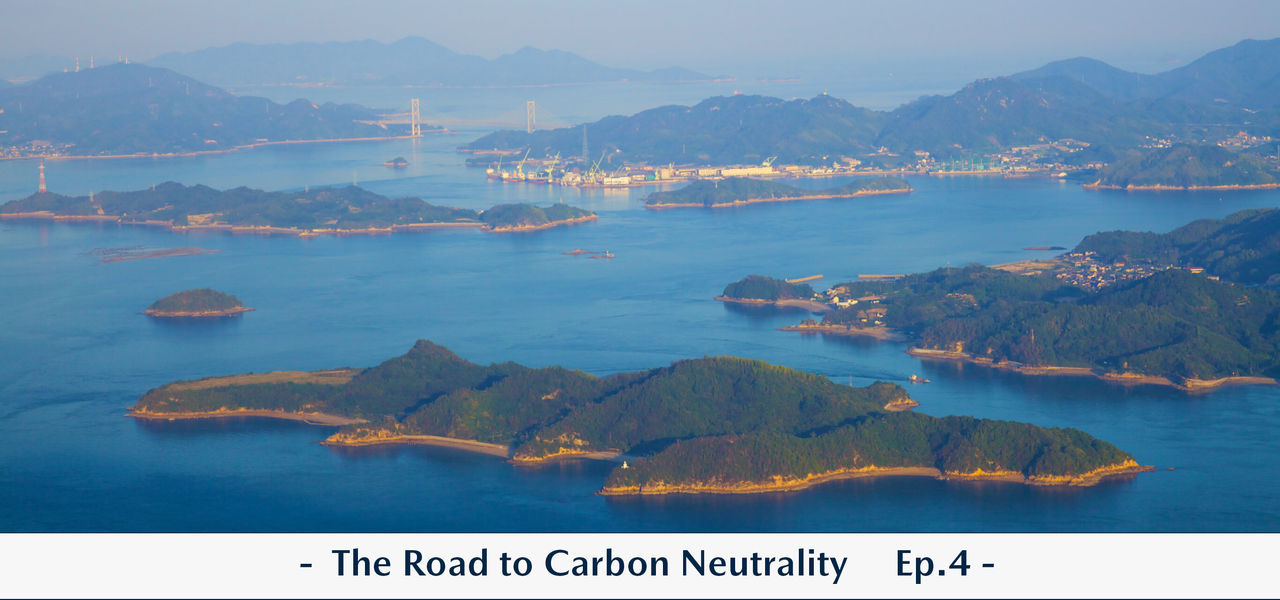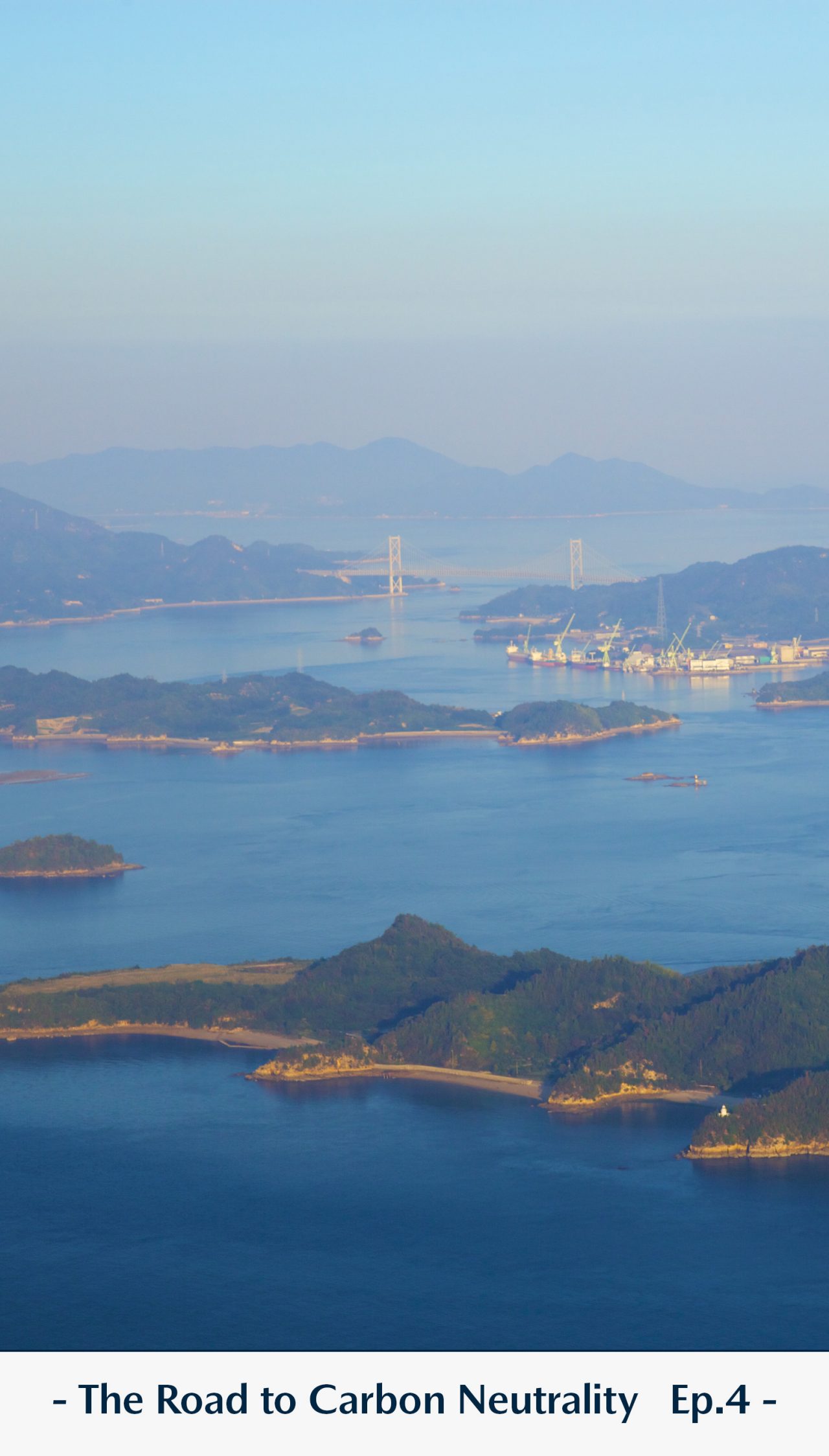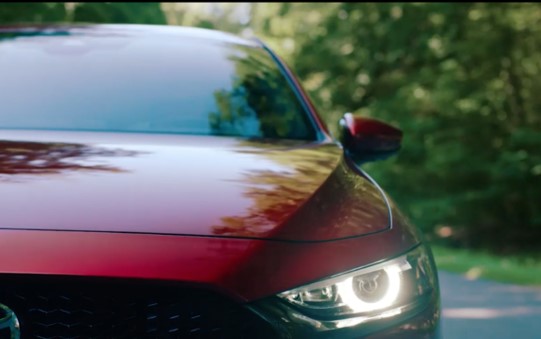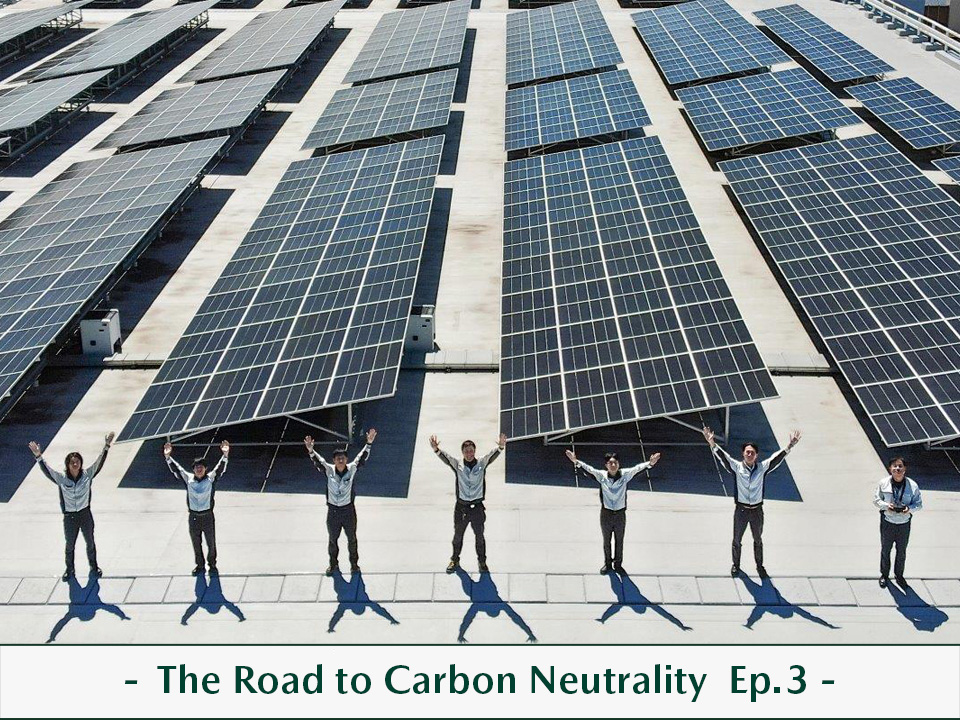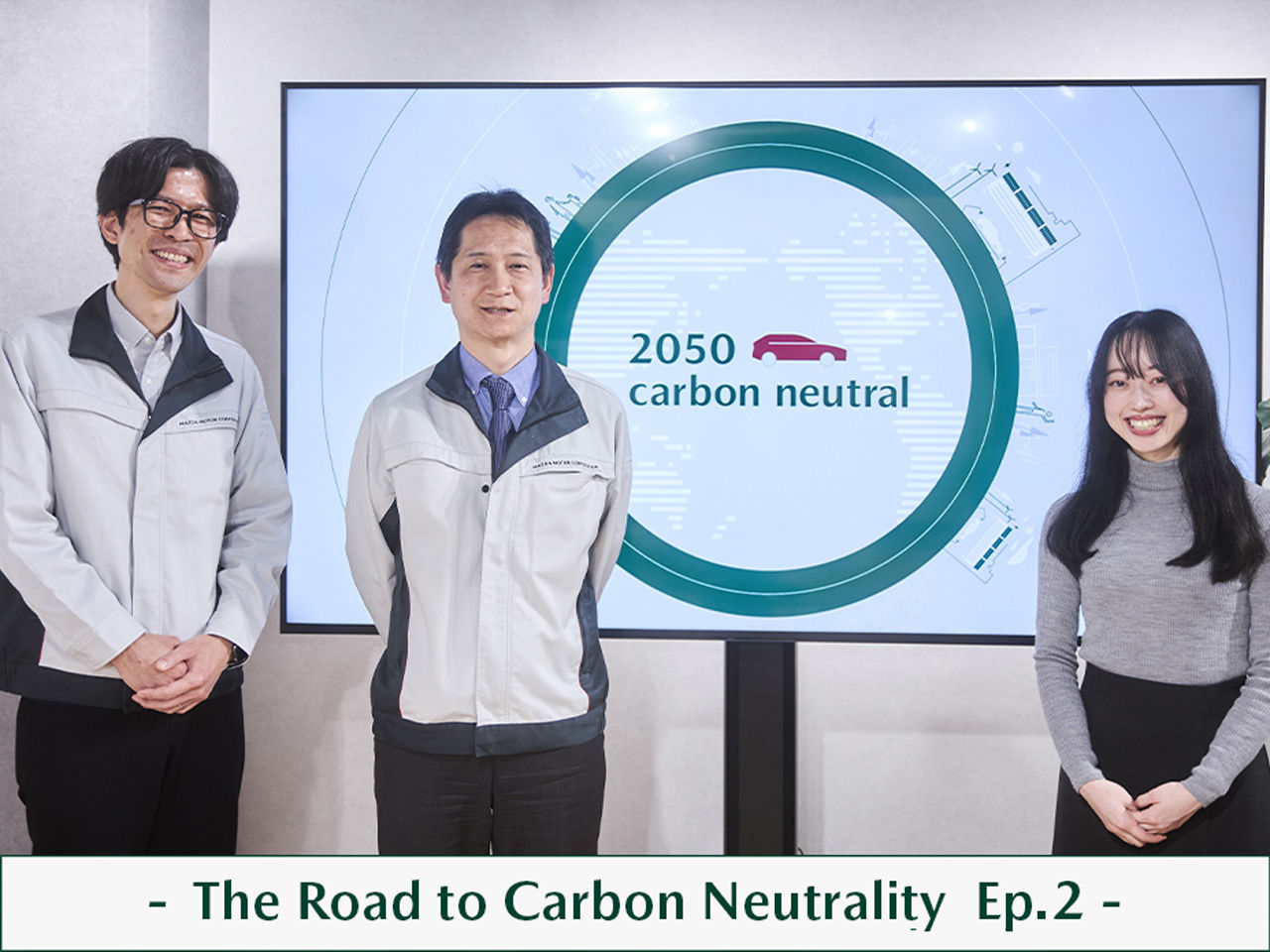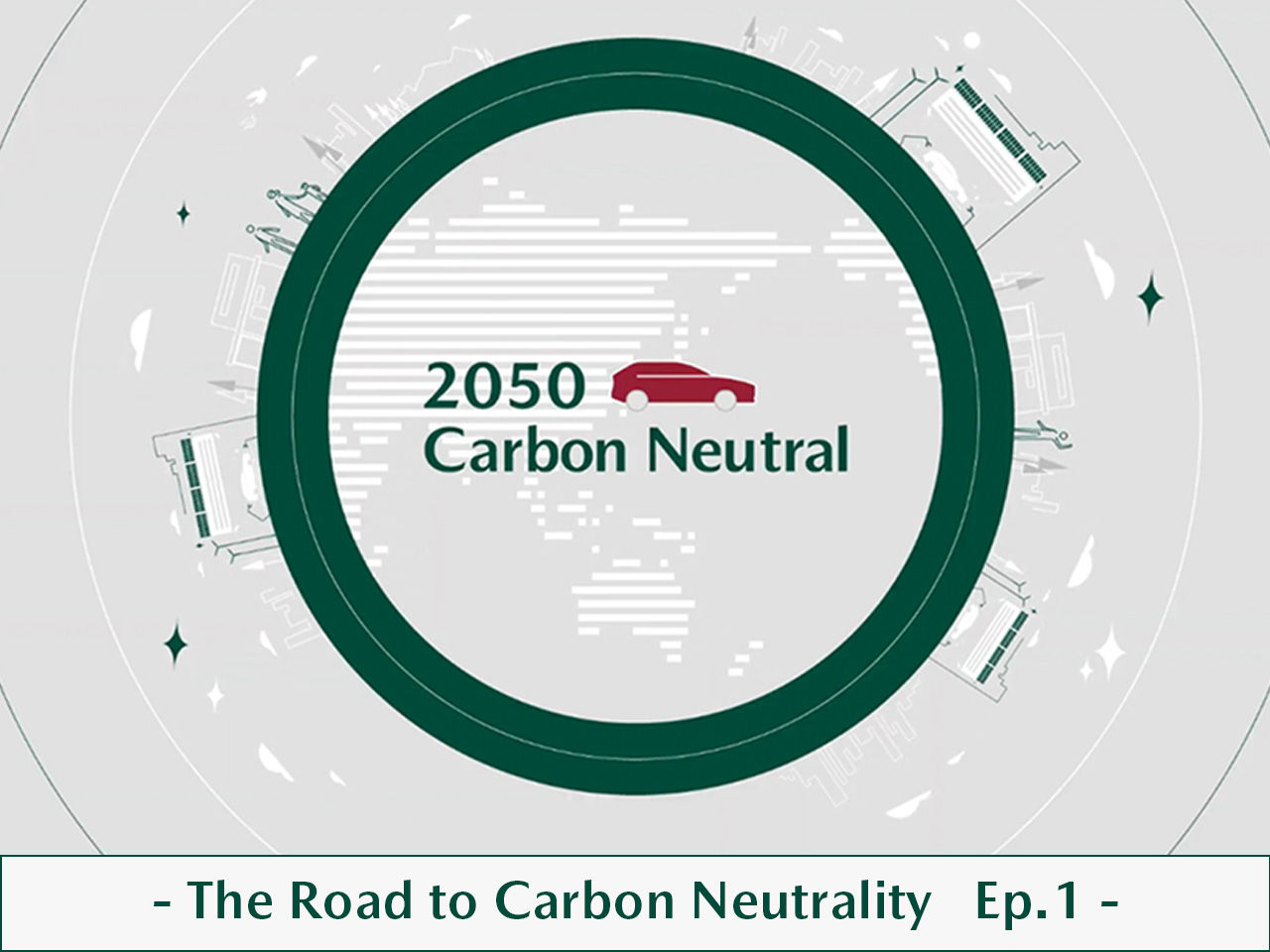2025.05.15
Building a Regional Ecosystem Through Renewable Energy: Mazda's Offsite Corporate PPA Initiative - The Road to Carbon Neutrality Episode 4
As revitalizing local economies through local production and consumption of renewable energy is seen as a favorable strategy, the use of offsite corporate Power Purchase Agreement (PPA) is drawing attention as a potential solution.
In 2023, as part of energy reforms aimed at achieving carbon neutrality by 2050, Mazda launched an offsite corporate PPA in partnership with companies in the Chugoku region. But this didn’t happen overnight. It was the achievement of many years of building a network of like-minded partners and collaborators, while continuously communicating the significance and vision of the initiative.
What exactly is an offsite corporate PPA? And why is Mazda promoting it? Mikako Aoyagi from the Communication Supervisory Group sat down with project leader Shinichi Marui from the Carbon Neutral and Resource Circulation Strategy Department, to explore where Mazda are in addressing this challenge, an area which holds potential not only for the wider adoption of renewable energy but also for regional revitalization.
Following on from her interviews in Episode 2 and Episode 3 of this series, Mikako Aoyagi from the Communication Supervisory Group, Communication Supervisory Department is back again. Aoyagi joined Mazda in 2020 during the COVID pandemic, and partly influenced by a university friend’s social media posts on climate change, has developed a keen interest in environmental issues.
Building on her previous interviews with Mazda team members about LCA* and the solar power generation facility at Mazda's plants, Aoyagi talks to project lead Marui to explore the potential of the offsite corporate PPA that Mazda is undertaking with partners.
*A method for evaluating environmental impact, such as CO₂ emissions, throughout a product's lifecycle, from production and transportation, to use and disposal.
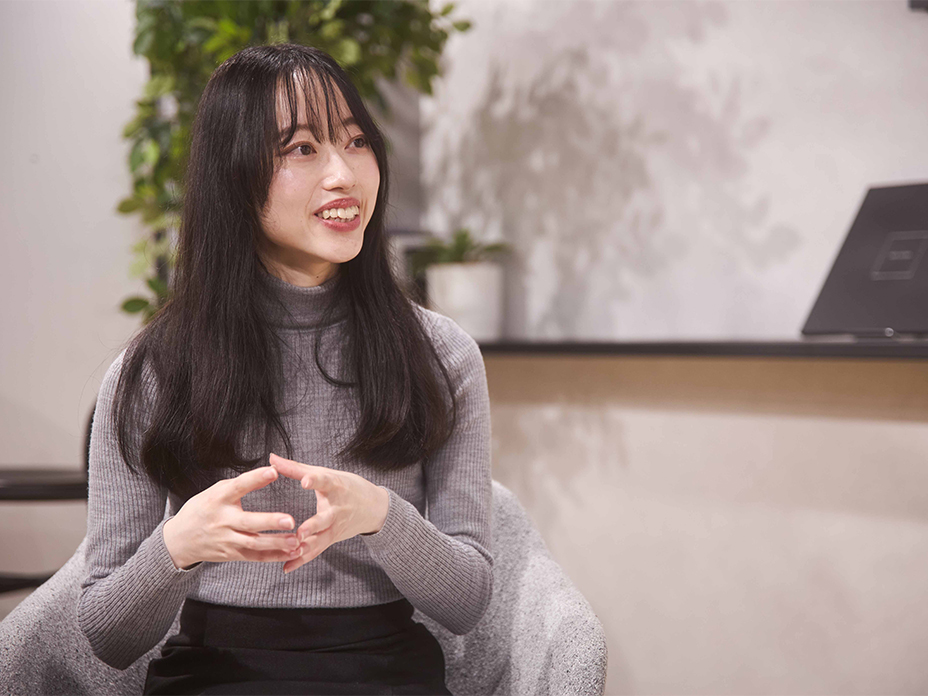

Mikako Aoyagi. After joining Mazda in 2020, handled public relations for the compact SUV MX-30. Later, wanting to be more deeply involved in sustainability, moved to the Communication Supervisory Group. Today, she creates content for Mazda's sustainability website, which features the company's environmental, social, and governance (ESG) initiatives.
How a Four-Company PPA Partnership Cut 2,610 Tons of CO₂ Annually
Aoyagi:
Mazda has built its own power plants within its factory sites. While most are coal-fired, in 2021 we introduced solar power generators. However, these cannot supply all the electricity needed for manufacturing, right?
Marui:
That's right. Mazda is installing new solar power facilities at manufacturing plants to replace coal-fired power generation with renewable energy. However, this is still insufficient to supply all the electricity Mazda uses, and there's a limit to the number of solar panels we can install on Mazda's factory premises. That's why we need to procure the shortfall of clean electricity through a Power Purchase Agreement (PPA).
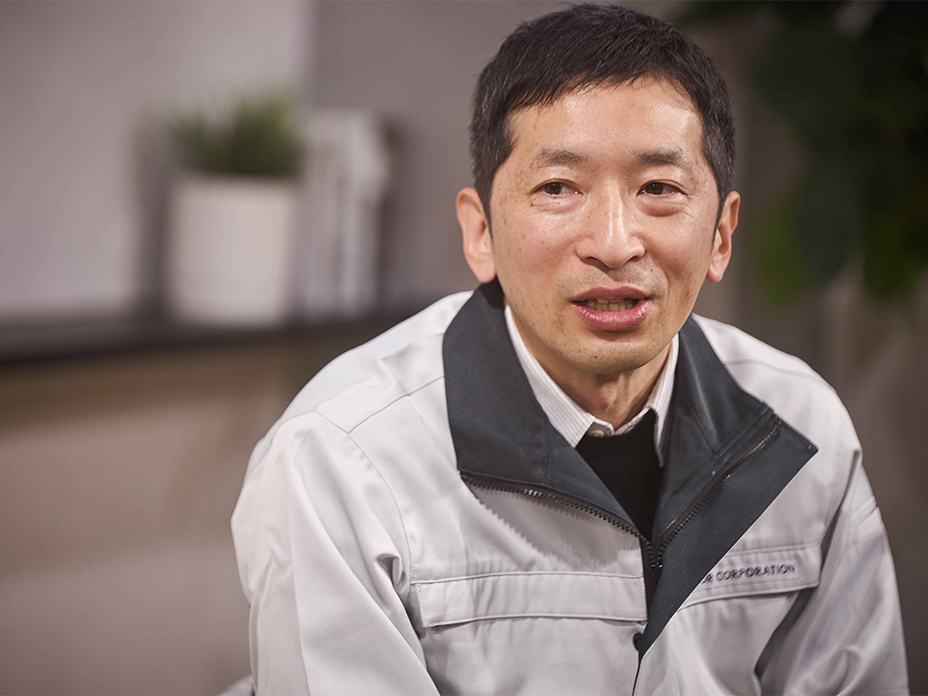

Shinichi Marui from the Carbon Neutral and Resource Circulation Strategy Department.
Aoyagi:
That makes sense. And in 2023, Mazda formed a four-company collaborative offsite corporate PPA with Toyo Seat, Choshu Industry, and Chugoku Electric Power, right? What exactly is an offsite corporate PPA?
Marui:
Well, a corporate PPA is a contract where companies like Mazda purchase renewable energy from an electric power producer over a long term of about 20-25 years. An offsite corporate PPA refers to a framework in which an electric power producer installs solar power facilities at an offsite location, one outside the consumer's premises, and supplies the generated electricity to the consumer through an electric power retailer.
In the 2023 offsite corporate PPA, Choshu Industry served as the electric power producer, installing solar power facilities on unused land owned by their company and Mazda in the Chugoku region. The electricity generated there is sold to Chugoku Electric Power, the electric power retailer, which then supplies the renewable energy electricity to Mazda and Toyo Seat, the consumers.
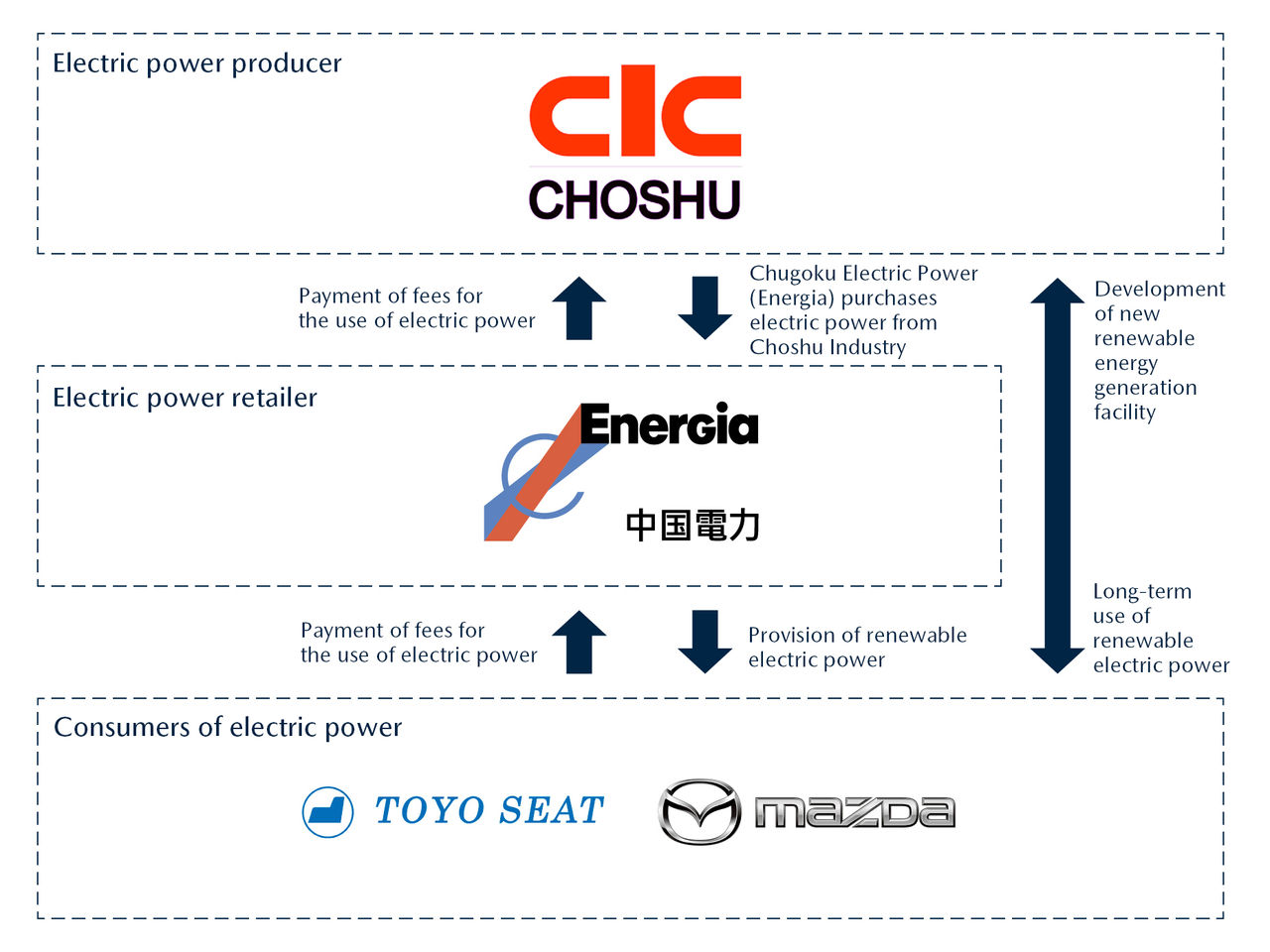

Offsite corporate PPA mechanism.
In February 2024, development of all planned power generation facilities was completed, enabling the procurement of renewable energy equivalent to an annual CO₂ reduction of 2,610 tons. Which is equal to the amount of CO₂ that more than 185,000 cedar trees can absorb in one year.
Fostering an Environment to Encourage Region-wide Renewable Energy Adoption
Aoyagi:
I understand the basic mechanism, but why did you choose this particular approach? Why not choose another option for procuring renewable energy?
Marui:
From an LCA perspective, when looking at the environmental impact of cars, the CO₂ emitted from Mazda's factories accounts for just a few percent of the entire lifecycle of Mazda vehicles. If we truly care about the environment, it's important to improve across the entire supply chain, not just at Mazda. More significantly, our approach considers that to achieve carbon neutrality throughout the whole supply, renewable energy must be adopted as a region-wide trend, not only in the automotive industry but across all industries.
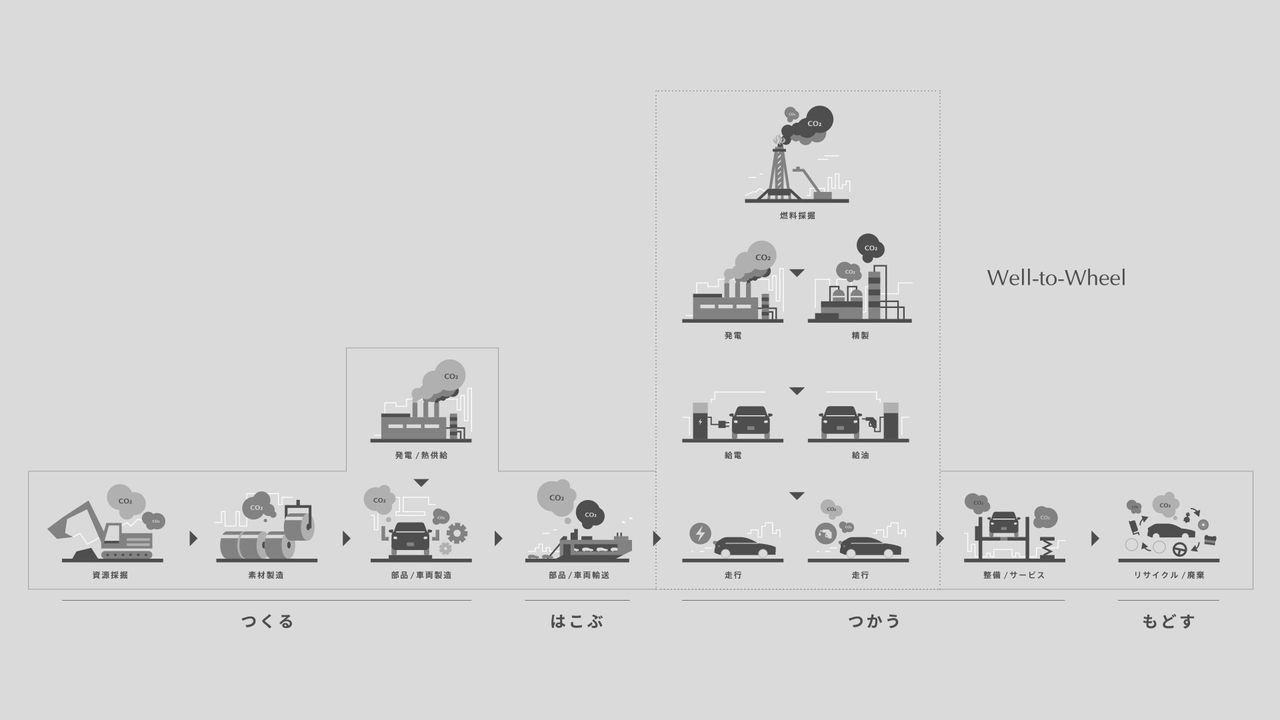

Mazda’s LCA approach.
Aoyagi:
I see. And it’s these considerations that led to the offsite corporate PPA initiative?
Marui:
Exactly. In other words, we first need to create an environment where electric power producers throughout the region can speed up the process of renewable energy adoption. If renewable electricity is produced but nobody uses it because it's expensive, or if people won't use it because the supply is still unstable, then the potential for increasing investment for more renewable energy power plants will be limited.
That's why energy consumers like Mazda need to first enter into offsite corporate PPA contracts, committing to stable, long-term renewable electricity purchases. This approach gives electric power producers the confidence to make investments. Over time, this increases the region's overall capacity for renewable electricity supply, stabilizes prices, and helps create a world where clean energy becomes the standard for everyone.
Not only that but when local companies take on the installation and maintenance of renewable energy power plants, new jobs are created, and industries who want renewable energy are attracted to the region, contributing to regional economic growth. Building a regional ecosystem through renewable energy is one of our major objectives.
Aoyagi:
It seems the initiative with Choshu Industry, Toyo Seat, and Chugoku Electric Power is the first step on an ambitious journey. And I expect you have plans to grow your network of like-minded partners and expand the offsite corporate PPA?
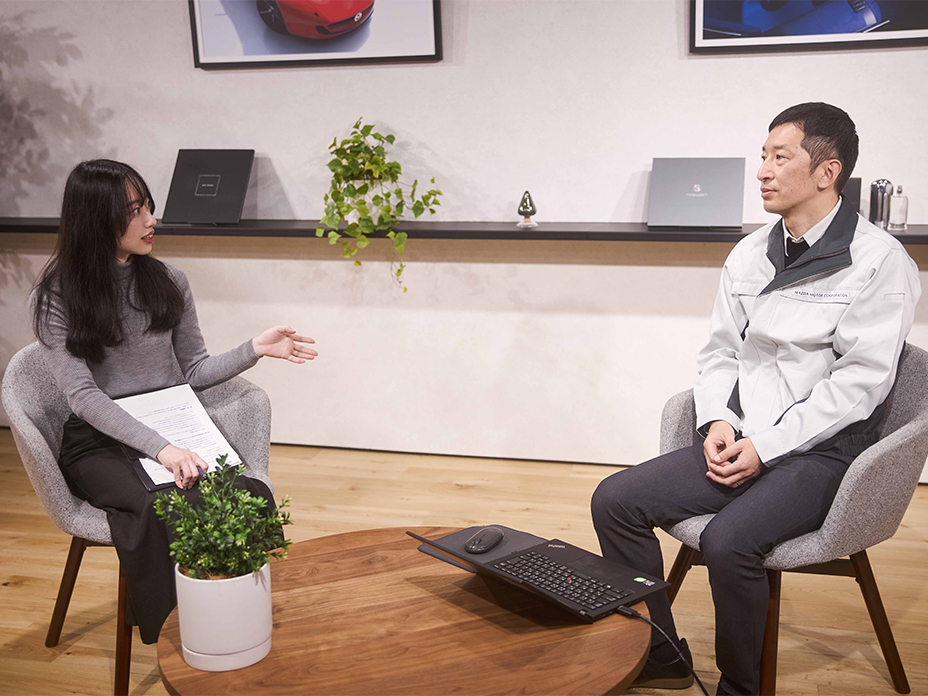

Marui:
That’s right. We particularly want suppliers and companies with business sites in the region to join us and become partners in achieving carbon neutrality.
This approach is actually something we began several years ago. Then in 2021, the Carbon Neutral Electricity Promotion Subcommittee, for which Mazda serves as the secretariat, was established. We started with 8 organizations, but that has now increased to 84.
In the subcommittee, various organizations from industry, government, academia, and finance gather to share ideas and discuss solutions to challenges for expanding renewable energy supply and demand in the Chugoku region. Last term, we formulated a roadmap, and from this term, we've entered the implementation phase for addressing challenges. Naturally, expanding the offsite corporate PPA is one of the main pillars of this plan.
Aoyagi:
What challenges do you anticipate in further expanding the offsite corporate PPA?
Marui:
One issue is finding a suitable site. With few participating companies, land for installing solar panels is limited, and if there's no spare capacity in the transmission lines in that area, we can't send the generated electricity. Even with the 2023 offsite corporate PPA, we struggled considerably to find suitable land. To expand further in the future, we believe the entire community needs to work together to find land that can be used.
Expanding the Circle of Carbon Neutrality Activities Through Regional Collaboration
Aoyagi:
How do you see corporate PPAs expanding in the future, and what role will partnerships play in advancing carbon neutrality?
Marui:
As I mentioned earlier, achieving carbon neutrality is a challenge shared by everyone in the region and all companies operating here. Collaboration with companies that possess the necessary technology is essential for developing the technologies needed to solve these challenges, build supply chains, and implement solutions. Policy support is also essential, and this isn't something Mazda can solve alone.
Throughout Mazda's 100-year history, we've been supported by many companies, including our suppliers. If we wish to continue our journey together for the next 100 years, we must address the issue of carbon neutrality. Understandably, each company has its own circumstances, and the pace of implementing initiatives will differ. At Mazda, we want to provide support where needed, and move toward a collaborative system where we all work together to achieve the same goals.
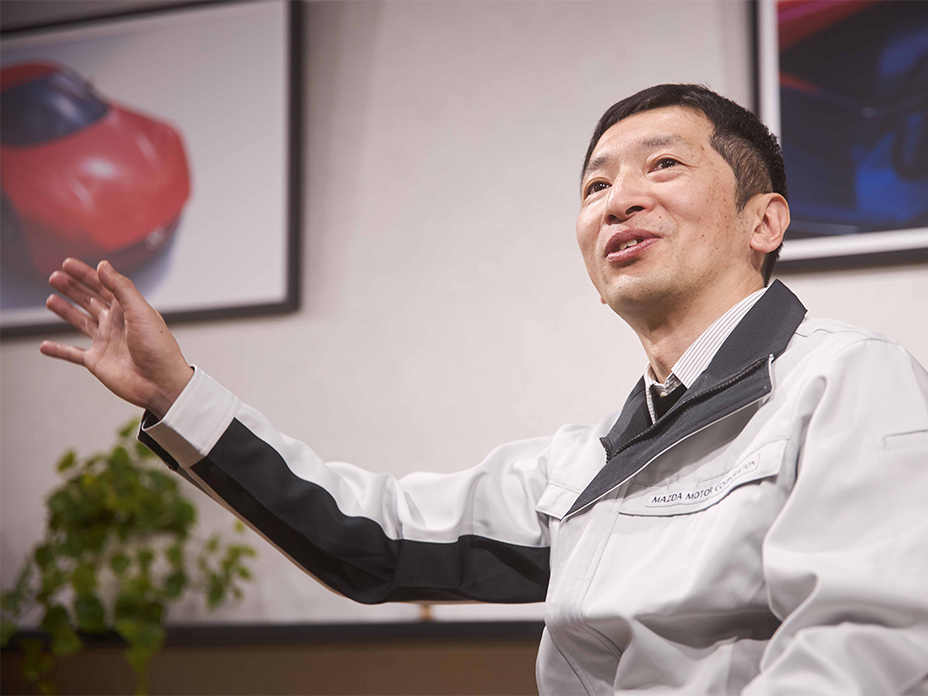

Aoyagi:
We need an approach where we work together not just for Mazda's sake, but for the region and for the children who will lead the future.
Marui:
Exactly. In recent years, we’re seeing more and more global warming-related natural disasters, and in Japan, we’re experiencing extended periods of extreme heat during summer which makes prolonged outdoor activities impossible. It means that environmental issues are now something people are familiar with and we can sense that something incredibly abnormal is happening in ways we can't see.
The Paris Agreement of 2015 set a goal of limiting global warming to 1.5℃ compared to pre-industrial levels, but there were reports that 2024 was the first single year to exceed 1.6 ℃. We need to accelerate our efforts with the understanding that continuing on our current path leads to a catastrophic future.
On the other hand, today's children are learning about the environment as early as elementary school. It's our generation's responsibility to first establish a path so that when these generations enter society, they can properly address environmental issues over the next 10 and 20 years. We want to create an environment where the entire region is united in realizing a decarbonized society, with Mazda taking the lead. And as we see it, there’s no time to lose.
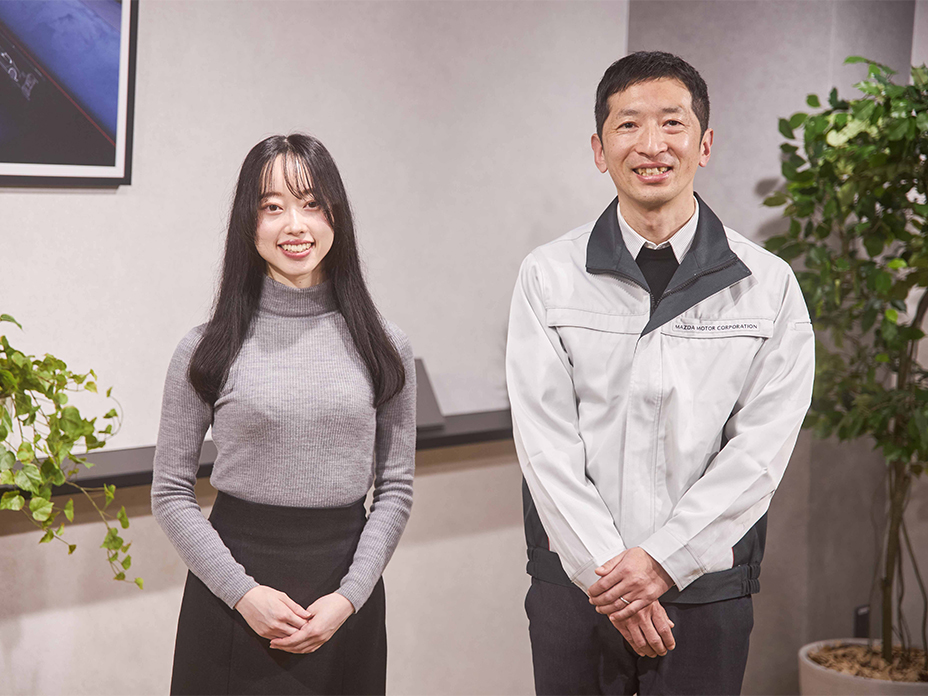

From the Editorial Team
Aoyagi had this to share about her experience.
“Throughout our conversation, I was deeply impressed by Mazda's commitment to Hiroshima and the Chugoku region. I can sense Mazda’s determination to ensure these communities remain sustainable places where future generations can thrive. What stands out is how Mazda are extending their environmental initiatives beyond the company to involving suppliers, local businesses, and community organizations. It’s an approach that reflects Mazda's century-long connection to the region, and how Mazda’s growth has always been intertwined with the community.
While many challenges remain, I had the sense that as these initiatives take root in Chugoku, there’s the potential to spread nationwide and ultimately contribute to our planet's brighter future. I left our discussion feeling genuinely optimistic.”
